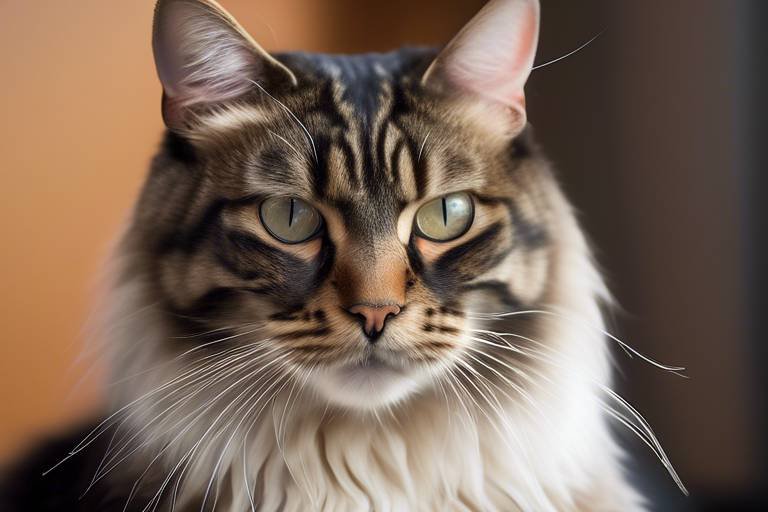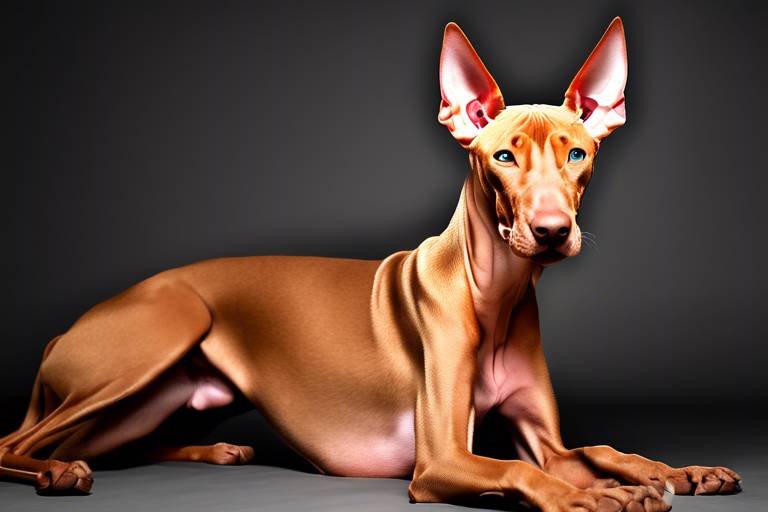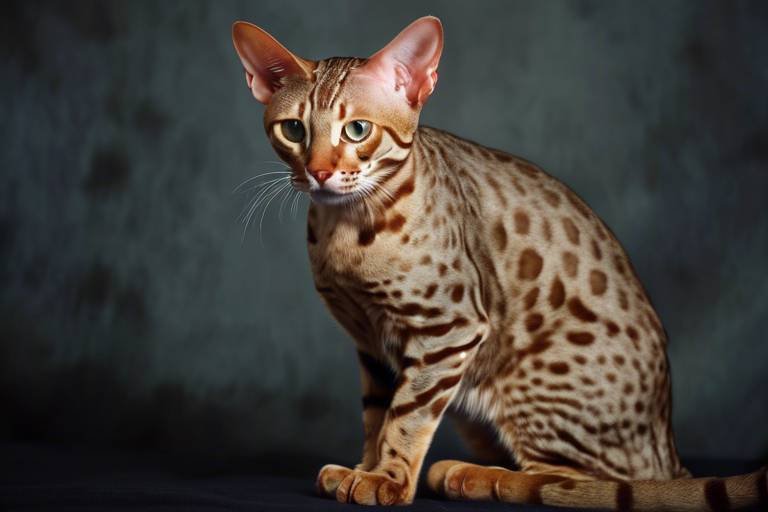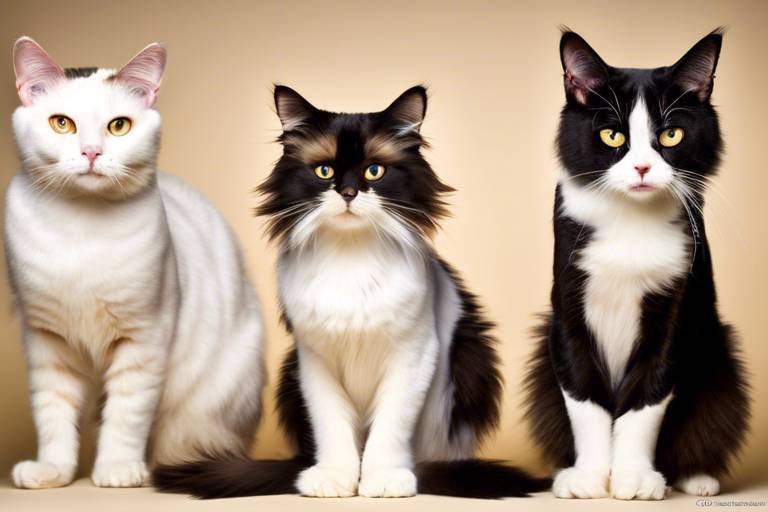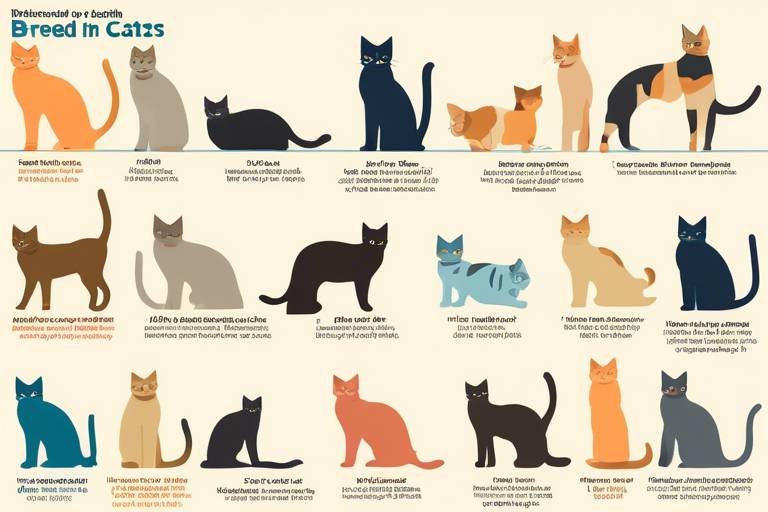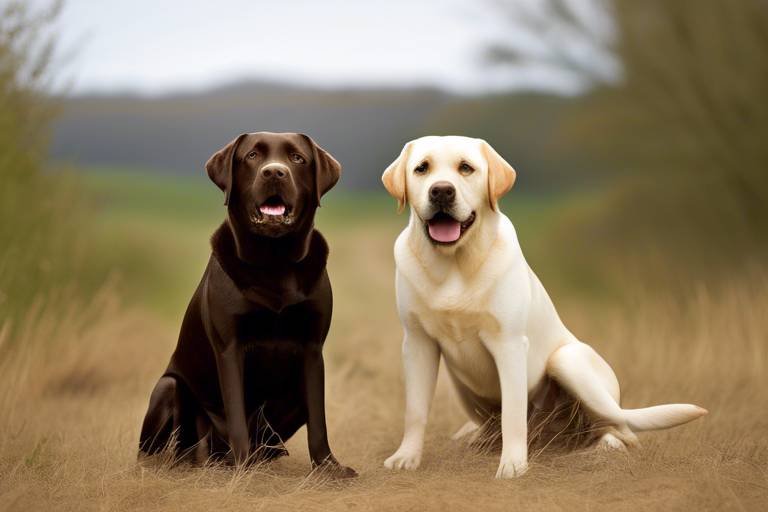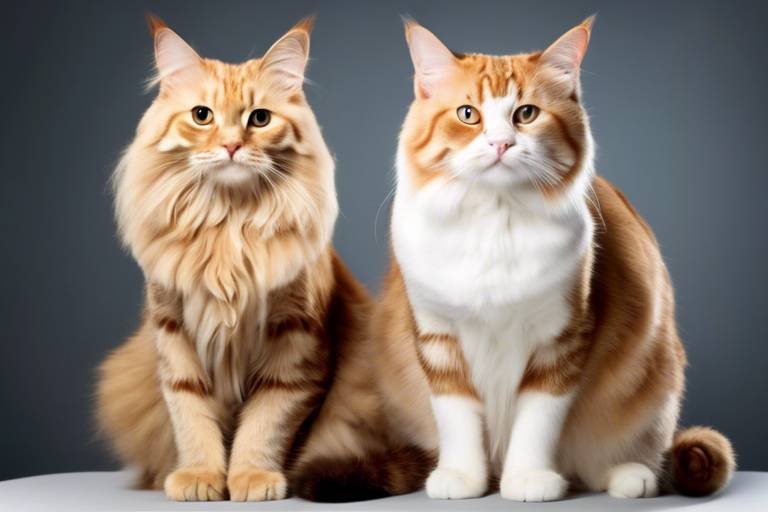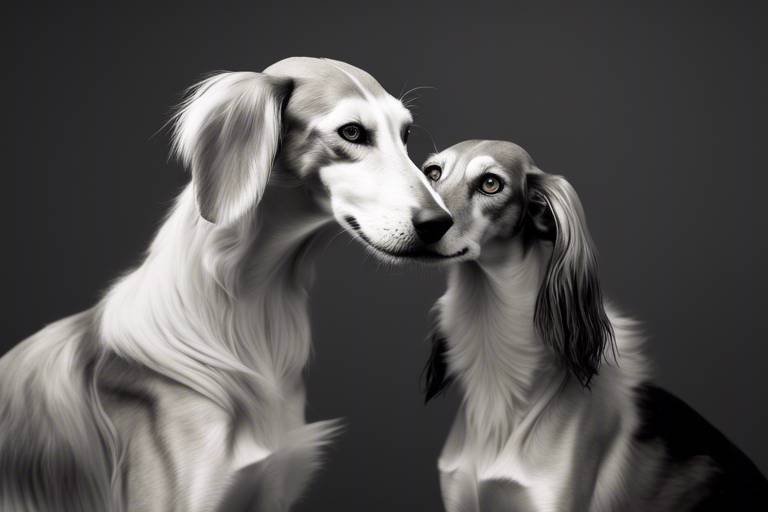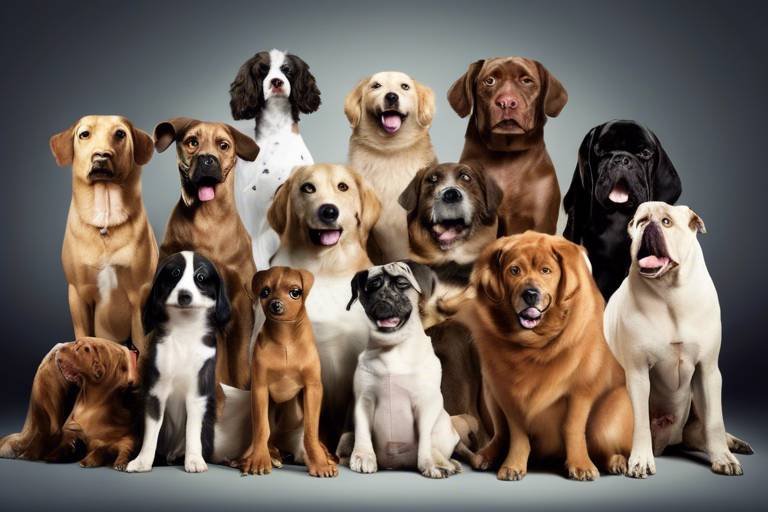The Unique Features of the Maine Coon Cat
The Maine Coon cat is not just a pet; it's an experience! With their **majestic size** and **distinctive features**, these cats have captured the hearts of many. Originating from the rugged landscapes of Maine, these felines are often referred to as "gentle giants." But what exactly makes them so special? In this article, we will delve into the unique traits of the Maine Coon, including their **physical characteristics**, **temperament**, and **care requirements**, providing insights that will help potential owners and enthusiasts appreciate this remarkable breed.
Maine Coons are known for their **large size**, tufted ears, and bushy tails. These physical traits contribute to their unique appearance, making them one of the most recognizable cat breeds in the world. A fully grown Maine Coon can weigh between 10 to 25 pounds, with males generally being larger than females. Their long, shaggy fur not only adds to their beauty but also serves a practical purpose, keeping them warm in cold climates. The fur is water-resistant, which is a handy trait for cats that may venture outdoors. Their **tufted ears** help to enhance their hearing abilities, while their bushy tails can be used for balance and warmth. It's no wonder that these cats are often compared to small lynxes!
When it comes to personality, the Maine Coon is often described as **gentle** and **friendly**. Their sociable nature makes them great companions, and they are known for their playful demeanor, which endears them to families and individuals alike. Unlike some breeds that may prefer solitude, Maine Coons thrive on interaction. They are known to follow their owners around the house, showing an affectionate side that is hard to resist. Their playful antics can bring a smile to anyone's face, as they enjoy engaging in games and exploring their surroundings.
Maine Coons are not just beautiful; they are also **highly intelligent** cats, capable of learning tricks and commands. Their cognitive abilities allow them to engage in interactive play, making them a joy to train and bond with. For instance, many Maine Coons can learn to fetch or even walk on a leash, showcasing their trainability. This intelligence also means they require mental stimulation to keep them engaged. Interactive toys and puzzle feeders can be excellent ways to challenge their minds and keep boredom at bay.
These cats exhibit remarkable **problem-solving skills**, often figuring out puzzles or toys designed for mental stimulation. Imagine a cat that can solve a puzzle to get to its treat! This intelligence keeps them entertained and helps prevent boredom-related behaviors, which can sometimes lead to destructive actions. Owners will find that providing various stimulating activities can lead to a happier, more fulfilled Maine Coon.
Their intelligence also translates into a strong desire for **social interaction**, as they enjoy engaging with their human companions and other pets. This fosters a harmonious household environment, making them excellent family pets. They are known to get along well with children and other animals, making them a great addition to any home.
Maine Coons are known for their adaptability to various living situations. Whether in a bustling household or a quieter environment, they can adjust well, making them suitable for different lifestyles. They can thrive in apartments as long as they have enough stimulation and interaction. Their easy-going nature means they can fit into any family dynamic, whether it's a lively household full of kids or a serene environment with just a couple of adults.
Like all breeds, Maine Coons are prone to specific health issues. Understanding these concerns can help owners provide better care and ensure their cats lead **healthy**, **happy lives**. Regular veterinary check-ups are essential for monitoring their health and catching any issues early.
Maine Coons may be predisposed to certain genetic conditions, such as **hypertrophic cardiomyopathy**. This heart condition can be serious, so it’s crucial for owners to be aware of the signs and symptoms. Regular check-ups can help monitor their health and catch any issues early. Knowing the potential risks allows owners to take proactive measures in their cat's healthcare.
A proper diet is crucial for maintaining the health of Maine Coons. Owners should focus on **high-quality nutrition** to support their unique physical needs and prevent obesity-related problems. Maine Coons have a tendency to overeat, so portion control is essential. A balanced diet rich in protein and essential nutrients will help keep them in tip-top shape. Don't forget to provide plenty of fresh water and consider consulting with a veterinarian to determine the best diet plan for your feline friend.
- Do Maine Coons get along with other pets? Yes, Maine Coons are known for their friendly and sociable nature, making them great companions for other pets.
- How often should I groom my Maine Coon? Regular grooming is recommended, at least once a week, to prevent matting and keep their fur healthy.
- Are Maine Coons good with children? Absolutely! Their gentle temperament makes them excellent playmates for children.
- What is the average lifespan of a Maine Coon? With proper care, Maine Coons can live between 12 to 15 years or more.
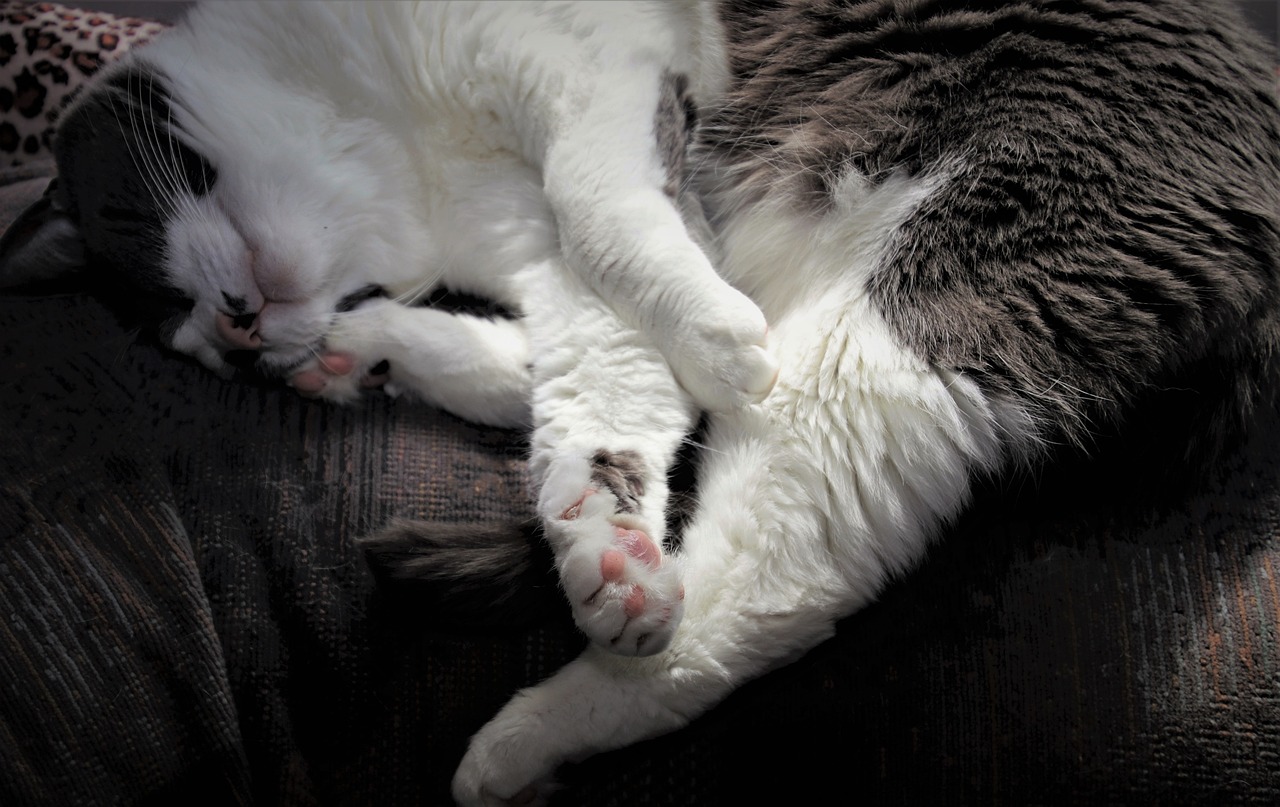
Physical Characteristics
This article explores the distinctive traits that make the Maine Coon cat a beloved breed, including its physical characteristics, temperament, and care requirements, providing insights for potential owners and enthusiasts alike.
Maine Coons are truly a sight to behold, renowned for their impressive size and striking features. These magnificent felines can weigh anywhere from 10 to 25 pounds, making them one of the largest domesticated cat breeds. Their robust build is complemented by a long, bushy tail that not only serves as a beautiful accessory but also helps them balance as they navigate their surroundings. Imagine a cat that looks like it just walked out of a fairy tale, with a plush coat that feels like a warm blanket! Their fur is thick and water-repellent, an adaptation that helps them thrive in colder climates, and it comes in a variety of colors and patterns, adding to their unique charm.
One of the most distinctive features of the Maine Coon is their tufted ears. These impressive ears are often adorned with tufts of fur that resemble those of a lynx, giving them an almost mythical appearance. Not only do these tufts add to their aesthetic appeal, but they also serve a practical purpose by helping to funnel sound, enhancing their already keen hearing. Their large, expressive eyes, which can be green, gold, or copper, further contribute to their captivating look, often giving them a wise and curious expression.
In addition to these features, Maine Coons have a sturdy bone structure and muscular build, which makes them incredibly agile despite their size. Their paws are large and tufted as well, which helps them navigate snowy terrains with ease. When you see a Maine Coon strutting around, it's hard not to be impressed by their grace and confidence. They truly embody the essence of feline elegance!
To summarize, here are some of the key physical characteristics of Maine Coon cats:
- Size: 10 to 25 pounds
- Fur: Thick and water-repellent
- Ears: Tufted, resembling a lynx
- Eyes: Large and expressive, in various colors
- Paws: Large and tufted for better traction
These unique physical traits not only make the Maine Coon a stunning breed but also contribute to their adaptability and resilience in various environments. Whether they are lounging in a sunny spot or playing energetically with their favorite toy, Maine Coons are sure to steal the spotlight with their remarkable appearance.
The Maine Coon is often described as gentle and friendly. Their sociable nature makes them great companions, and they are known for their playful demeanor, which endears them to families and individuals alike.
Maine Coons are highly intelligent cats, capable of learning tricks and commands. Their cognitive abilities allow them to engage in interactive play, making them a joy to train and bond with.
These cats exhibit remarkable problem-solving skills, often figuring out puzzles or toys designed for mental stimulation. This intelligence keeps them entertained and helps prevent boredom-related behaviors.
Their intelligence also translates into a strong desire for social interaction, as they enjoy engaging with their human companions and other pets, fostering a harmonious household environment.
Maine Coons are known for their adaptability to various living situations. Whether in a bustling household or a quieter environment, they can adjust well, making them suitable for different lifestyles.
Like all breeds, Maine Coons are prone to specific health issues. Understanding these concerns can help owners provide better care and ensure their cats lead healthy, happy lives.
Maine Coons may be predisposed to certain genetic conditions, such as hypertrophic cardiomyopathy. Regular veterinary check-ups can help monitor their health and catch any issues early.
A proper diet is crucial for maintaining the health of Maine Coons. Owners should focus on high-quality nutrition to support their unique physical needs and prevent obesity-related problems.
Q: Do Maine Coons get along with other pets?
A: Yes! Maine Coons are known for their friendly and sociable nature, making them great companions for other pets.
Q: How often should I groom my Maine Coon?
A: Due to their long fur, Maine Coons benefit from regular grooming, ideally once a week, to prevent matting and to keep their coat healthy.
Q: Are Maine Coons good with children?
A: Absolutely! Their gentle temperament makes them excellent playmates for children, and they are generally very tolerant.
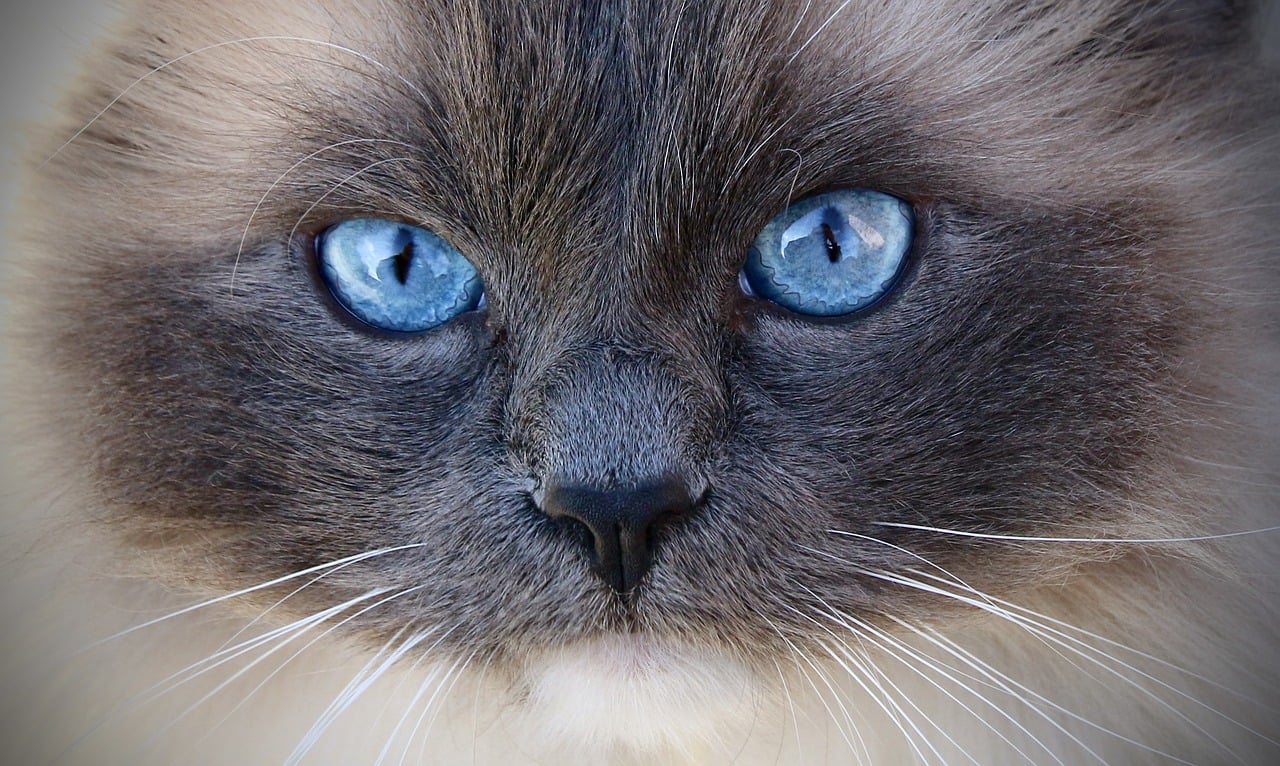
Temperament
The Maine Coon cat is often regarded as one of the most gentle and friendly breeds out there. Imagine a big, fluffy cat that greets you at the door, almost like a loyal dog. Their sociable nature makes them fantastic companions, and they have a unique ability to bond with both families and individuals alike. You might find them following you around the house, curious about what you're up to, or lounging next to you on the couch, soaking up your company. This breed is not just about looks; their personality is what truly sets them apart.
One of the most delightful aspects of the Maine Coon’s temperament is their playful demeanor. These cats have a child-like curiosity and enjoy engaging in various activities that stimulate their minds and bodies. Whether it’s chasing a feather toy, playing hide and seek, or even just pouncing on a crumpled piece of paper, Maine Coons are always ready for fun. Their playful antics can bring a smile to anyone’s face, making them a joy to have around.
Maine Coons are not just pretty faces; they are highly intelligent cats capable of learning tricks and commands. Imagine teaching your cat to fetch or even to sit on command—sounds like something out of a cat training video, right? Their cognitive abilities allow them to engage in interactive play, making them a delight to train and bond with. You’ll find that they quickly learn the ropes and enjoy the challenge of figuring out new games.
These cats exhibit remarkable problem-solving skills, often figuring out puzzles or toys designed for mental stimulation. It’s like watching a little furry detective in action! They can spend hours figuring out how to get a treat out of a puzzle feeder or how to open a door if they really want to. This intelligence keeps them entertained and helps prevent boredom-related behaviors, which can sometimes lead to mischief if left unchallenged.
Their intelligence also translates into a strong desire for social interaction. Maine Coons thrive on companionship and enjoy engaging with their human companions and other pets. They are known for their affectionate nature, often seeking out attention and cuddles. This breed is not the type to hide away in a corner; instead, they’ll be right in the middle of the family action, fostering a harmonious household environment.
Another remarkable trait of the Maine Coon is their adaptability to various living situations. Whether you live in a bustling household filled with kids and noise or a quieter environment, Maine Coons can adjust well. They are surprisingly flexible and can thrive in different lifestyles. This adaptability makes them suitable for a wide range of families and individuals, from busy professionals to retirees looking for a companion.
- Are Maine Coons good with children?
Yes, Maine Coons are known for their friendly and gentle temperament, making them excellent companions for children. - Do Maine Coons get along with other pets?
Absolutely! Their sociable nature allows them to get along well with other pets, including dogs. - How much grooming do Maine Coons require?
Due to their long fur, Maine Coons require regular grooming to prevent matting, ideally a few times a week. - Are Maine Coons vocal?
They are known for their chirps and trills, which they use to communicate with their owners.
Intelligence
This article explores the distinctive traits that make the Maine Coon cat a beloved breed, including its physical characteristics, temperament, and care requirements, providing insights for potential owners and enthusiasts alike.
Maine Coons are known for their large size, tufted ears, and bushy tails. Their physical traits contribute to their unique appearance, making them one of the most recognizable cat breeds in the world.
The Maine Coon is often described as gentle and friendly. Their sociable nature makes them great companions, and they are known for their playful demeanor, which endears them to families and individuals alike.
Maine Coons are not just pretty faces; they are also highly intelligent cats that can often surprise their owners with their cleverness. These furry companions possess an innate ability to learn tricks and commands, making them a joy to train. Imagine having a cat that can fetch a toy or respond to its name—this isn’t just a fantasy with a Maine Coon! Their cognitive abilities allow them to engage in interactive play, which not only keeps them entertained but also strengthens the bond between pet and owner.
But what exactly makes their intelligence stand out? For starters, Maine Coons have remarkable problem-solving skills. They often tackle puzzles or toys designed for mental stimulation with an enthusiasm that can be both amusing and impressive. This natural curiosity and intelligence help prevent boredom-related behaviors, which can be a common issue in less stimulated pets. Owners can provide a variety of toys and challenges to keep their Maine Coons mentally sharp and engaged.
Additionally, their intelligence translates into a strong desire for social interaction. Maine Coons thrive on engaging with their human companions and other pets. They often follow their owners around the house, curious about what they are doing, and are known to “talk” back with a variety of trills and chirps when spoken to. This sociable nature fosters a harmonious household environment, as they are not just pets; they become part of the family. It’s like having a furry friend who understands you and wants to be involved in your daily life!
In summary, the intelligence of Maine Coons is a key factor that makes them such delightful companions. Their ability to learn, solve problems, and engage socially enriches the lives of their owners and makes them a breed worth considering for anyone looking to add a furry friend to their home.
Maine Coons are known for their adaptability to various living situations. Whether in a bustling household or a quieter environment, they can adjust well, making them suitable for different lifestyles.
Like all breeds, Maine Coons are prone to specific health issues. Understanding these concerns can help owners provide better care and ensure their cats lead healthy, happy lives.
Maine Coons may be predisposed to certain genetic conditions, such as hypertrophic cardiomyopathy. Regular veterinary check-ups can help monitor their health and catch any issues early.
A proper diet is crucial for maintaining the health of Maine Coons. Owners should focus on high-quality nutrition to support their unique physical needs and prevent obesity-related problems.
- Are Maine Coons good with children? Yes, Maine Coons are known for their gentle nature and often get along well with children.
- How much grooming do Maine Coons require? Due to their long fur, they require regular grooming to prevent matting and to keep their coats healthy.
- Do Maine Coons get along with other pets? Generally, yes! Their sociable personality makes them adaptable to living with other pets.
- What is the average lifespan of a Maine Coon? Maine Coons typically live between 12 to 15 years, with proper care and nutrition.
Problem-Solving Skills
The Maine Coon cat is not just a pretty face; it boasts impressive that set it apart from many other breeds. Imagine a cat that can figure out how to open a door or navigate a complex puzzle toy—this is the reality for Maine Coons. Their natural curiosity and intelligence drive them to explore their surroundings, and they often tackle challenges head-on. Just like a child playing with a new toy, Maine Coons engage with their environment in a way that keeps their minds sharp and active.
These cats thrive on mental stimulation, and you can easily see this in their playtime. Whether it's a simple cardboard box or a high-tech interactive toy, they approach each new challenge with an inquisitive spirit. They are known to spend hours trying to figure out how to extract a hidden treat from a puzzle feeder, showcasing their ability to think critically and act strategically. This level of engagement not only keeps them entertained but also strengthens the bond between the cat and its owner.
To help foster these skills, owners can introduce various activities that challenge their Maine Coons. Here are a few ideas:
- Puzzle Toys: Invest in toys that require the cat to solve a problem to receive a reward, such as treats or toys.
- Hide and Seek: Hide treats around the house and encourage your Maine Coon to find them, stimulating their natural hunting instincts.
- Interactive Games: Use feather wands or laser pointers to engage them in playful chases that require quick thinking and agility.
By providing a variety of stimulating activities, you can ensure that your Maine Coon remains mentally sharp and satisfied. This focus on problem-solving not only entertains them but also helps prevent boredom-related behaviors, such as scratching or excessive meowing. In a way, nurturing their intelligence is like giving them a workout for their minds—keeping them fit and happy.
Ultimately, the Maine Coon's exceptional problem-solving abilities make it a fascinating companion. They are not just pets; they are engaging partners in play and exploration. So, if you’re considering adding a Maine Coon to your family, be prepared for a cat that will keep you on your toes and bring endless joy through its clever antics.
- Are Maine Coons easy to train? Yes, their intelligence and sociable nature make them relatively easy to train.
- What kind of toys do Maine Coons enjoy? They love puzzle toys, feather wands, and interactive games that challenge their problem-solving skills.
- How can I keep my Maine Coon mentally stimulated? Regularly introduce new toys, engage in playtime, and hide treats around the house to encourage exploration.
Social Interaction
The Maine Coon cat is not just a pet; they are a part of the family, and their skills truly set them apart from other breeds. These cats thrive on companionship and are known for their affectionate nature. Imagine coming home after a long day, and instead of hiding away, your Maine Coon greets you at the door, tail held high and ready to engage. It's this kind of warm welcome that makes them so beloved.
Maine Coons are incredibly social creatures who enjoy being involved in family activities. They often follow their owners around the house, curious about what you're up to. This behavior is not just about being nosy; it reflects their innate desire to bond and be part of the action. Whether you’re cooking in the kitchen or relaxing on the couch, your Maine Coon will likely want to join in, making them a delightful presence in your home.
Moreover, their playful demeanor is infectious. These cats love interactive playtime, whether it’s chasing a feather toy or engaging in a game of hide and seek. This playfulness not only strengthens the bond between you and your feline friend but also keeps them mentally stimulated. Engaging in regular play sessions can be a great way to keep your Maine Coon happy and healthy. You might find yourself laughing as they leap and pounce, showcasing their impressive agility and grace.
Another fascinating aspect of their social behavior is their ability to get along well with other pets. Maine Coons are known for their gentle disposition, which allows them to coexist peacefully with dogs and other cats. They often take on a nurturing role, especially with younger animals, displaying a level of patience that is truly admirable. This makes them an excellent choice for families with multiple pets, as they can help create a harmonious household.
In terms of communication, Maine Coons are quite vocal. They have a range of sounds, from chirps to trills, which they use to express their needs and feelings. This vocalization adds a unique layer to their personality and enhances the interaction between them and their owners. You may find yourself having conversations with your Maine Coon, responding to their calls and enjoying the back-and-forth exchange. It’s this level of engagement that makes owning a Maine Coon such a rewarding experience.
In summary, the social interaction of Maine Coons is characterized by their affectionate nature, playful demeanor, and ability to bond with both humans and other pets. Their desire for companionship and engaging personality make them more than just pets; they become cherished members of the family.
- Are Maine Coons good with children? Yes, Maine Coons are known for their gentle and playful nature, making them excellent companions for children.
- How much social interaction do Maine Coons need? Maine Coons thrive on social interaction and enjoy being involved in family activities. Regular playtime and companionship are essential for their well-being.
- Do Maine Coons get along with other pets? Generally, yes! Maine Coons are known for their friendly disposition and can coexist harmoniously with other pets.
- How vocal are Maine Coons? Maine Coons are quite vocal and use a variety of sounds to communicate, making them engaging companions.
Adaptability
This article explores the distinctive traits that make the Maine Coon cat a beloved breed, including its physical characteristics, temperament, and care requirements, providing insights for potential owners and enthusiasts alike.
Maine Coons are known for their large size, tufted ears, and bushy tails. Their physical traits contribute to their unique appearance, making them one of the most recognizable cat breeds in the world.
The Maine Coon is often described as gentle and friendly. Their sociable nature makes them great companions, and they are known for their playful demeanor, which endears them to families and individuals alike.
Maine Coons are highly intelligent cats, capable of learning tricks and commands. Their cognitive abilities allow them to engage in interactive play, making them a joy to train and bond with.
These cats exhibit remarkable problem-solving skills, often figuring out puzzles or toys designed for mental stimulation. This intelligence keeps them entertained and helps prevent boredom-related behaviors.
Their intelligence also translates into a strong desire for social interaction, as they enjoy engaging with their human companions and other pets, fostering a harmonious household environment.
Maine Coons are renowned for their adaptability, a trait that sets them apart in the feline world. Whether you're living in a bustling family home filled with activity or a quieter apartment, these cats can seamlessly adjust to their surroundings. Their laid-back nature allows them to thrive in various environments, making them suitable for both city dwellers and country living enthusiasts alike.
For instance, if you have young children or other pets, Maine Coons are typically up for the challenge. They are known for their patient demeanor and can handle the hustle and bustle of a lively household with grace. On the flip side, if you prefer a more tranquil setting, these cats can also enjoy lounging around in a calm atmosphere, making them the perfect companions for anyone looking for a furry friend.
Moreover, their adaptability extends to their personalities as well. Maine Coons are social butterflies, often forming strong bonds with their families. They thrive on companionship and will happily adjust their energy levels to match yours. If you’re feeling playful, they’ll engage in games of chase or fetch. Conversely, if you’re in the mood to relax, they’ll curl up beside you, content to soak in your presence.
In summary, the Maine Coon's adaptability is one of its most appealing traits, allowing it to fit into a variety of lifestyles and living situations. This flexibility not only makes them wonderful pets but also enriches the lives of their owners.
Like all breeds, Maine Coons are prone to specific health issues. Understanding these concerns can help owners provide better care and ensure their cats lead healthy, happy lives.
Maine Coons may be predisposed to certain genetic conditions, such as hypertrophic cardiomyopathy. Regular veterinary check-ups can help monitor their health and catch any issues early.
A proper diet is crucial for maintaining the health of Maine Coons. Owners should focus on high-quality nutrition to support their unique physical needs and prevent obesity-related problems.
- Do Maine Coons get along with other pets? Yes, Maine Coons are known for their friendly and sociable nature, making them great companions for other pets.
- How much grooming do Maine Coons require? Due to their long fur, Maine Coons benefit from regular grooming to prevent matting and reduce shedding.
- Are Maine Coons good with children? Absolutely! Their gentle temperament makes them excellent playmates for children.
- What is the average lifespan of a Maine Coon? Maine Coons typically live between 12 to 15 years, with proper care and regular vet check-ups.
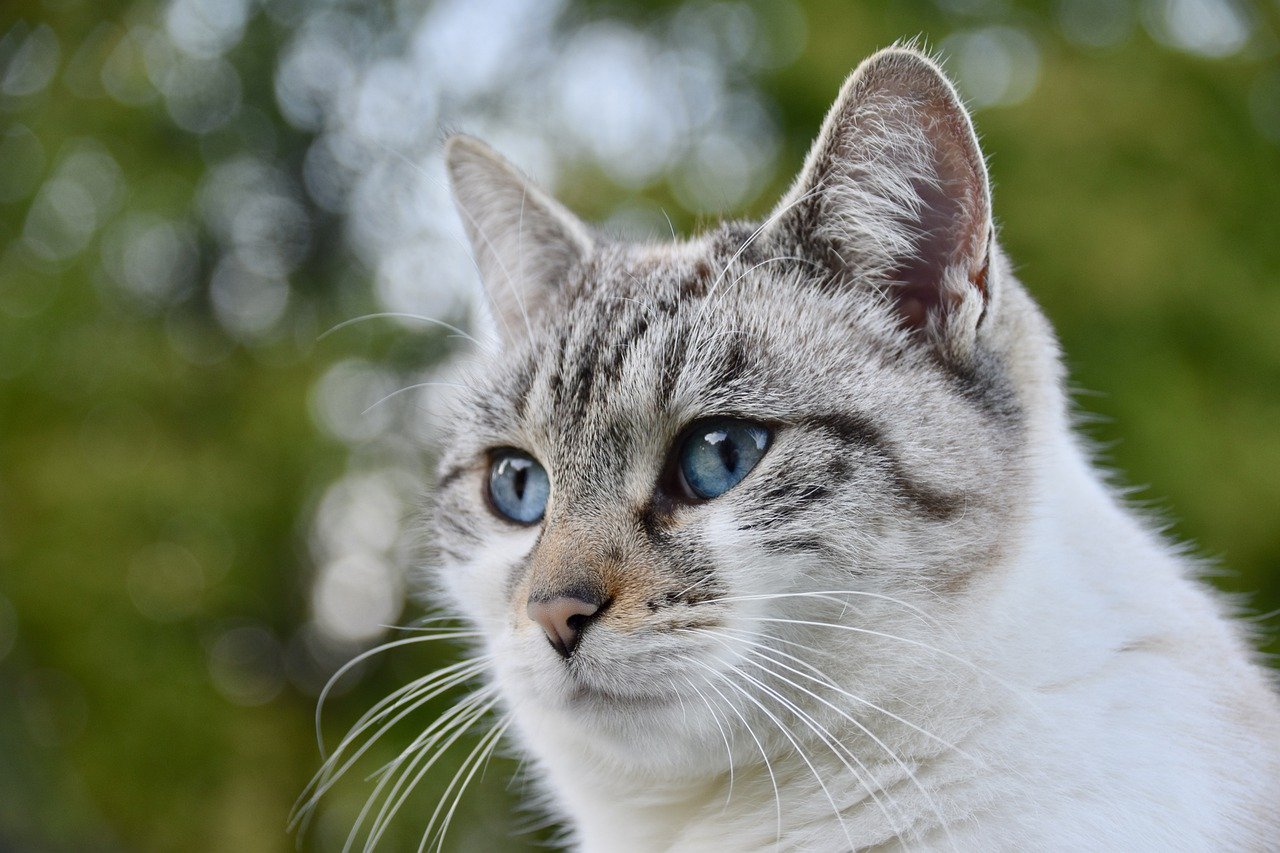
Health Considerations
When it comes to owning a Maine Coon, understanding their health needs is crucial. Like all breeds, Maine Coons are prone to specific health issues that potential owners should be aware of. By being informed, you can provide the best care possible and ensure that your feline friend lives a long, happy life. One of the most common health concerns in Maine Coons is hypertrophic cardiomyopathy (HCM), a genetic condition that affects the heart muscle. This condition can lead to serious complications if not monitored properly.
Regular veterinary check-ups are essential for early detection of any health issues. During these visits, your vet can perform heart screenings and recommend appropriate care. In addition to HCM, Maine Coons may also experience hip dysplasia, which can affect their mobility and overall quality of life. Being proactive about your cat's health can significantly improve their well-being.
Another critical aspect of maintaining a Maine Coon's health is their diet. These majestic cats have unique nutritional needs due to their size and energy levels. A balanced diet rich in high-quality protein is vital for their growth and muscle maintenance. Owners should focus on providing a diet that minimizes the risk of obesity, which is a common issue in indoor cats. Here’s a quick look at some dietary considerations:
| Dietary Component | Importance |
|---|---|
| High-Quality Protein | Supports muscle growth and energy |
| Healthy Fats | Promotes a shiny coat and overall health |
| Vitamins and Minerals | Boosts immune system and bone health |
| Hydration | Essential for kidney health and digestion |
In addition to diet, regular exercise is important to keep your Maine Coon healthy and prevent obesity. Engaging them with interactive toys or even a simple game of fetch can provide the physical activity they need. Remember, a well-stimulated cat is a happy cat!
Lastly, don’t forget about grooming. Maine Coons have long, luxurious fur that requires regular brushing to prevent matting and reduce shedding. Grooming not only keeps their coat looking fabulous but also offers a chance to check for any unusual lumps or skin issues. By keeping a close eye on their health and grooming needs, you can help your Maine Coon thrive.
- What are the common health issues in Maine Coons? Maine Coons are prone to hypertrophic cardiomyopathy, hip dysplasia, and obesity-related problems.
- How often should I take my Maine Coon to the vet? Regular check-ups at least once a year are recommended, with more frequent visits for older cats or those with health issues.
- What is the best diet for a Maine Coon? A high-quality diet rich in protein, healthy fats, and essential vitamins and minerals is ideal.
- How can I keep my Maine Coon active? Engage them with toys, interactive play, and even cat trees to encourage climbing and exploration.
Genetic Conditions
The Maine Coon cat, with its majestic appearance and charming personality, is not without its health concerns. One of the most significant genetic conditions that can affect this breed is hypertrophic cardiomyopathy (HCM). This heart condition is characterized by the thickening of the heart muscle, which can lead to various complications, including heart failure. It's crucial for potential Maine Coon owners to be aware of this risk and to seek out breeders who screen their breeding cats for HCM. Regular veterinary check-ups can play a pivotal role in early detection and management of this condition, ensuring that your feline friend remains healthy and happy.
Aside from HCM, Maine Coons can also be predisposed to other genetic issues such as hip dysplasia and spinal muscular atrophy (SMA). Hip dysplasia is a malformation of the hip joint that can lead to arthritis and discomfort as the cat ages. On the other hand, SMA is a genetic disorder that affects the spinal cord's motor neurons, leading to muscle weakness and atrophy. While these conditions may sound daunting, the key is proactive care. Regular vet visits and a keen eye for any changes in behavior or mobility can help catch these issues early.
To further illustrate the importance of understanding genetic conditions in Maine Coons, here's a simple table summarizing some common genetic issues:
| Condition | Description | Prevention/Treatment |
|---|---|---|
| Hypertrophic Cardiomyopathy (HCM) | Thickening of the heart muscle leading to heart failure. | Regular vet check-ups, screening by breeders. |
| Hip Dysplasia | Malformation of the hip joint causing discomfort. | Regular exercise, weight management. |
| Spinal Muscular Atrophy (SMA) | Genetic disorder affecting muscle strength. | Supportive care, monitoring for symptoms. |
When considering welcoming a Maine Coon into your home, it's essential to be informed and prepared. Understanding these genetic conditions not only helps you recognize potential health issues but also empowers you to provide the best care possible. By choosing a responsible breeder, staying vigilant about your cat's health, and maintaining a healthy lifestyle for your feline friend, you can significantly enhance their quality of life.
- What is hypertrophic cardiomyopathy? HCM is a common heart condition in Maine Coons where the heart muscle thickens, potentially leading to heart failure.
- How can I prevent genetic conditions in my Maine Coon? Choose a reputable breeder who screens for genetic issues, and ensure regular veterinary check-ups for early detection.
- What are the signs of hip dysplasia in cats? Signs may include difficulty jumping, limping, or reluctance to play. If you notice any of these, consult your vet.
- Is spinal muscular atrophy treatable? There is no cure for SMA, but supportive care can help manage symptoms and improve quality of life.
Diet and Nutrition
When it comes to the of Maine Coons, understanding their specific needs is essential for their overall health and well-being. These magnificent felines are not just large in size; they also have unique nutritional requirements that set them apart from other breeds. A balanced diet rich in high-quality protein is crucial for their muscular build and energy levels. Think of it this way: just like a professional athlete needs the right fuel to perform at their best, your Maine Coon requires the same to thrive.
High-quality cat food, whether it be dry kibble or wet food, should be the cornerstone of their diet. Look for brands that list real meat as the first ingredient, as this ensures your cat is receiving the necessary protein. Additionally, Maine Coons benefit from foods that are rich in omega fatty acids, which help maintain their luxurious fur and promote healthy skin. You wouldn’t want to neglect your own nutrition, right? The same goes for your furry friend!
Moreover, hydration is another crucial aspect of a Maine Coon's diet. These cats can be prone to urinary tract issues, so providing fresh water at all times is vital. Some owners find that their Maine Coons prefer running water, so investing in a pet water fountain can be a game-changer. It's like giving them a mini waterfall right in your home!
Here’s a quick overview of the essential dietary components for Maine Coons:
| Component | Importance |
|---|---|
| Protein | Supports muscle development and energy levels. |
| Fats | Provides energy and promotes healthy skin and coat. |
| Carbohydrates | Provides energy, but should be limited. |
| Vitamins & Minerals | Essential for overall health and immune function. |
Portion control is also important to prevent obesity, a common concern in Maine Coons due to their large size and love for food. It's tempting to spoil them with treats, but moderation is key. Consider using treats as a reward during training sessions, which not only keeps them engaged but also helps manage their weight.
In addition to commercial cat food, you might be tempted to share some human food with your Maine Coon. While some foods like cooked chicken or fish can be safe in moderation, always avoid toxic foods such as onions, garlic, and chocolate. It’s essential to do your research or consult with your veterinarian before introducing any new foods into their diet.
Ultimately, providing a well-rounded diet tailored to the Maine Coon's specific needs will ensure they lead a healthy and happy life. After all, a well-fed Maine Coon is a happy Maine Coon!
- What is the best food for a Maine Coon? - Look for high-quality cat food that lists real meat as the first ingredient and is rich in omega fatty acids.
- How much should I feed my Maine Coon? - Portion sizes can vary based on age, weight, and activity level. Consult your veterinarian for personalized recommendations.
- Can Maine Coons eat human food? - Some human foods are safe, but always avoid toxic foods and consult with your vet before sharing any table scraps.
- How can I keep my Maine Coon hydrated? - Provide fresh water at all times and consider a pet water fountain to encourage drinking.
Frequently Asked Questions
- What are the physical characteristics of Maine Coon cats?
Maine Coons are truly stunning creatures! They are known for their large size, tufted ears, and bushy tails. Their impressive stature and unique features make them one of the most recognizable cat breeds in the world. Imagine a cat that looks like it could be part raccoon—those fluffy tails and big ears really set them apart!
- What is the temperament of a Maine Coon?
If you're looking for a friendly feline friend, the Maine Coon is your go-to breed! They are often described as gentle giants with a sociable nature. Their playful demeanor makes them fantastic companions, whether you’re a family with kids or a single individual looking for a buddy. They have a knack for making everyone feel loved and included!
- Are Maine Coons intelligent?
Absolutely! Maine Coons are among the smartest cat breeds out there. They can learn tricks and commands, which is a delightful surprise for many cat owners. Their intelligence allows them to engage in interactive play, and they thrive on mental challenges, so be ready for some fun training sessions!
- How adaptable are Maine Coon cats?
Maine Coons are incredibly adaptable! Whether you live in a busy household or a quieter environment, these cats can adjust to various living situations with ease. They’re like the chameleons of the cat world, fitting in wherever they go. This flexibility makes them suitable for different lifestyles, from bustling families to serene singles.
- What health issues should I be aware of with Maine Coons?
Like any breed, Maine Coons can be prone to specific health concerns, such as hypertrophic cardiomyopathy. Regular veterinary check-ups are essential to keep an eye on their health and catch any potential issues early. It's always better to be proactive than reactive when it comes to your furry friend's well-being!
- What is the best diet for a Maine Coon?
Feeding your Maine Coon a balanced and nutritious diet is crucial for their health. Focus on high-quality cat food that caters to their unique physical needs. This helps prevent obesity-related problems and keeps them in tip-top shape. Think of it as giving them the fuel they need to be the playful, energetic companions they are!

